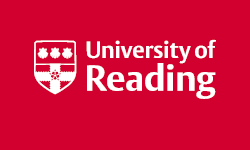Council approval for Modern Languages merger
Wednesday, 20 March 2019

The Council has endorsed the University Executive Board (UEB) recommendation to merge the Department of Modern Languages and European Studies (MLES) and the Institution-Wide Language Programme (IWLP).
At its meeting on Monday 18 March, the Council also endorsed the recommendation that the merged department be operational from 1 August 2019 and be part of the School of Literature and Languages.
The Council shares our commitment to a stronger future for languages at Reading and is supportive of these important changes. Changes to how we work and are organised currently will help provide financial sustainability to our modern language provision, offer some certainty to colleagues and students, and provide the space we need to build on the excellence we have.
The Council will now establish a Consultation Group to deliver the changes in line with the University’s Restructuring Procedure. This procedure was agreed between the University, UCU and the Staff Forum as a means of ensuring fairness in how we make decisions in difficult circumstances such as this.
The review was initiated last year to explore options to reduce the budget deficit in the Department of Modern Languages and European Studies, and to recommend ways of delivering financially sustainable language learning. The Review Group – led by Mark Fellowes (Pro-Vice-Chancellor, Academic Planning & Resources) and including Gail Marshall (Head of School of Literature and Languages), David Carter (Head of International Study and Language Institute), Katja Strohfeldt (Teaching & Learning Dean), Roberta Gilchrist (Research Dean) along with representatives from HR and Finance – spoke with a number of colleagues and accepted individual and team submissions.
It recommended the creation of a new language unit through the merger or MLES and IWLP, saying such a unit will help us:
- meet the need for financial sustainability and our ability to maintain language teaching at Reading;
- offer a broader range of languages to our students;
- develop programmes that respond to the evolving learning needs of our students and are attractive to applicants;
- offer a range of complementary modules, some of which can blend language and culture; and
- create a centre of excellence in research and language pedagogy.
The recommendations suggested that the new Department will have between 24.5-29.5 full-time equivalent (FTE) staff, as compared to the 37.68 FTE staff in MLES and IWLP currently. The savings will come from a reorganisation of teaching in the four overlapping languages (French, Italian, Spanish and German), and through a refocusing of research efforts.
